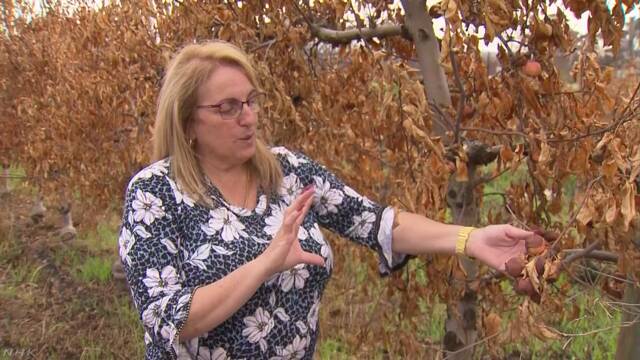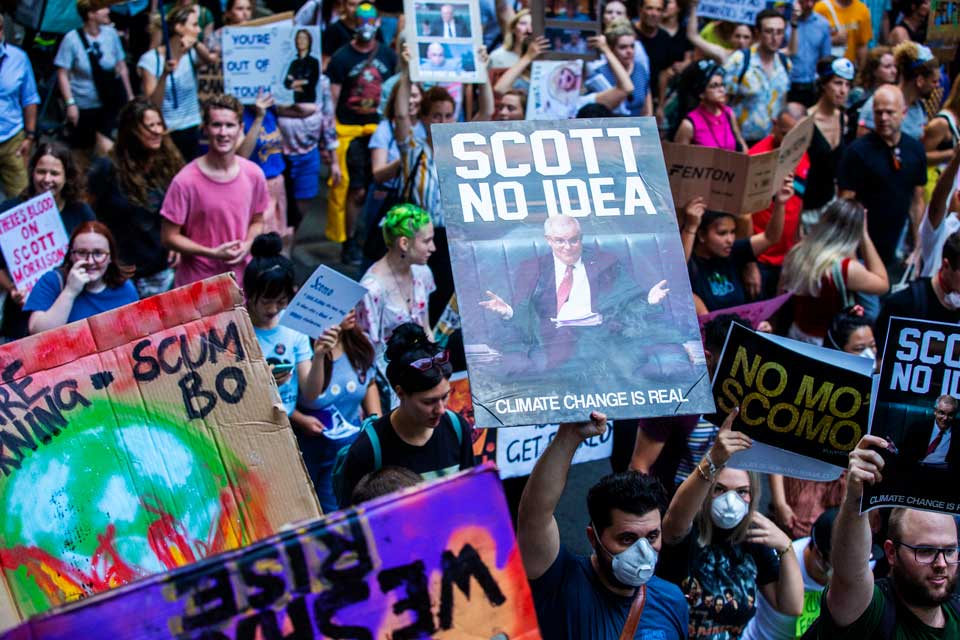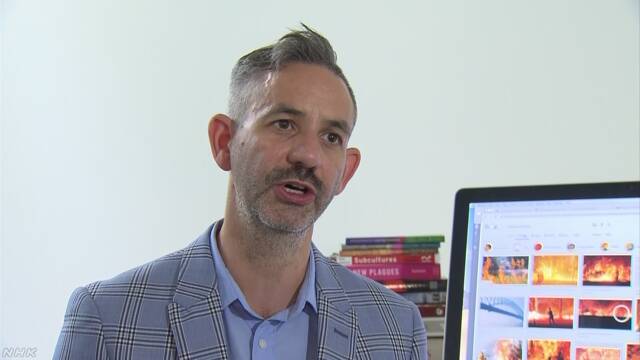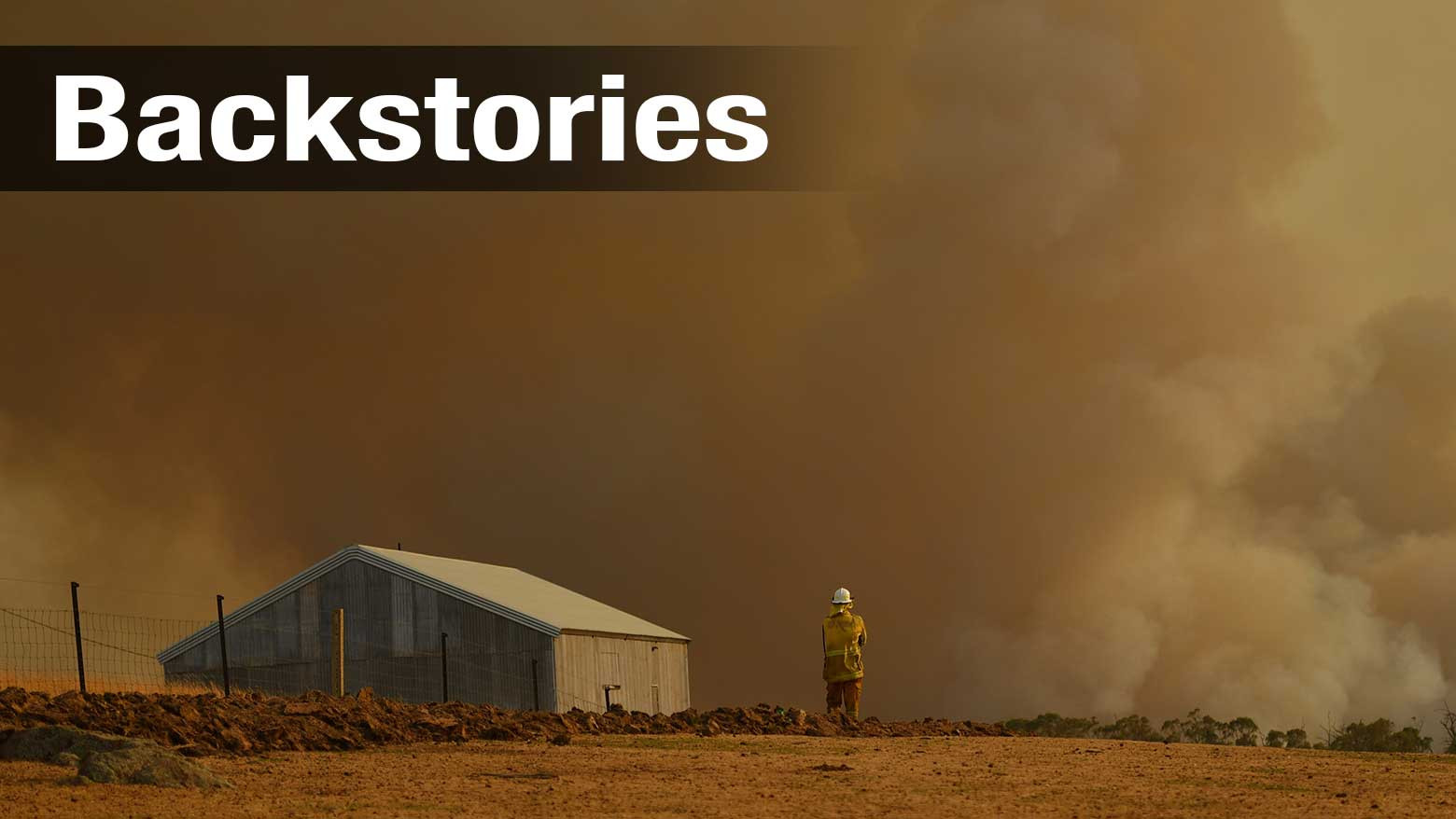Margaret Tadrosse is the owner of a 22-hectare orchard in New South Wales. She says she has lost about 6,000 trees and that damage to fruit, netting and other equipment could rise to one million dollars.
As a volunteer firefighter for 30 years, Tadrosse says she has seen many fire crises but has never felt this much fear. "These bushfires have changed our life tremendously," she said. "We really need financial support from the government."

Bushfires are common across Australia. The fire season in New South Wales is normally during the dry months of October to March. But 2019 was different. Australia's weather bureau says it was the hottest and driest year on record. The average temperature for the year reached 23.3 degrees Celsius, while average rainfall was 277.6 millimeters, a record low.
The bureau says climate change is affecting the Indian Ocean Dipole, where warmer sea-surface temperatures in the western Indian Ocean and cooling in the eastern waters cause dryness in adjacent lands in Indonesia and Australia.

Hundreds of people gathered in Sydney this month, calling for government action on climate change. A firefighter at the protest said he had never seen the fires so intense. He demanded that the government and companies halt development of fossil fuels. A woman protester criticized Prime Minister Scott Morrison, urging him to take action.
Public support for Morrison has slumped amid widespread anger over his government's handling of the fires. Morrison supports the coal industry, and he was vacationing in Hawaii at the height of the crisis.
A recent survey put his approval rating at 37%, with 59% of respondents saying they were dissatisfied with his performance. That's an 8 percentage-point drop in approval and an 11-point rise in dissatisfaction.

Dale Dominey-Howes is a professor at the University of Sydney, specialized in disaster risk. He views the current bushfires as extensive and long-term, making them the worst in history. He says action on the climate crisis is needed.
He also notes that the fires this time broke out in many places simultaneously, making it difficult for volunteer firefighters to handle. He says the government relies too heavily on volunteers, and that it needs to build a professionally trained and experienced fire-fighting force.
Rains in mid-January lashed parts of Australia's east coast, dousing some of the flames but not fully extinguishing the fires.
Australians will have to wait until March for rains long enough to bring lasting relief. Until then, the country remains on high alert.

